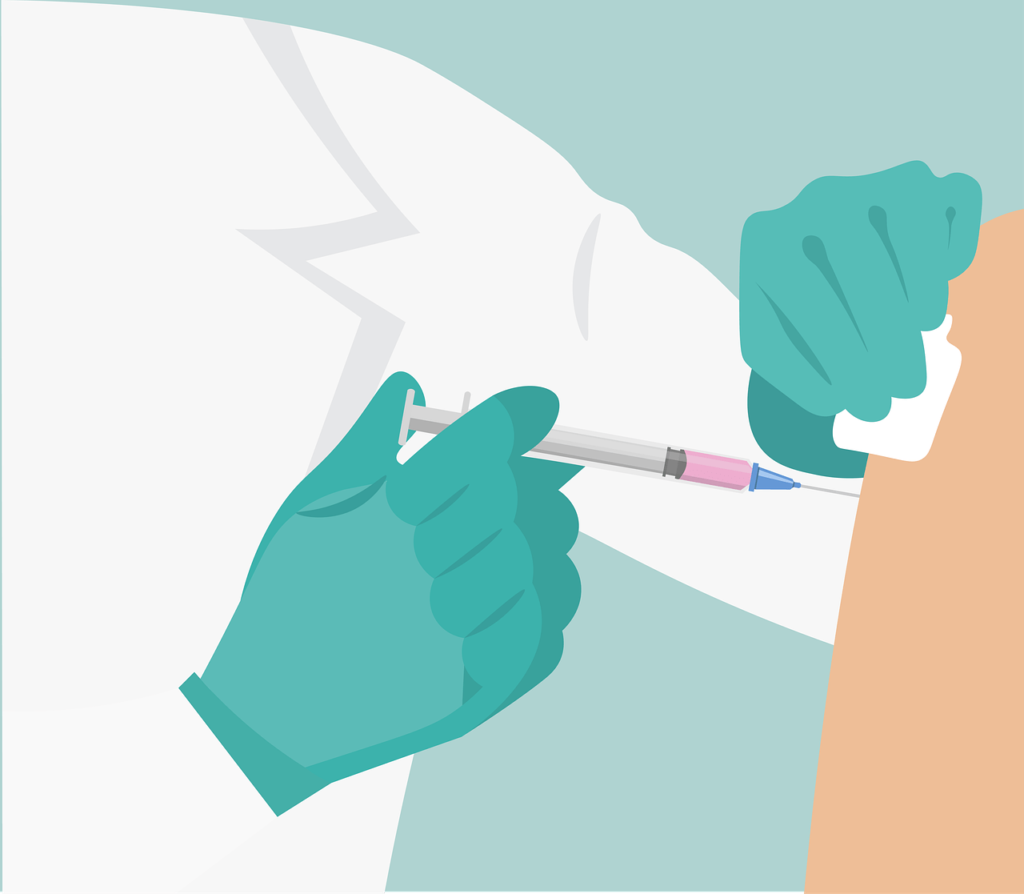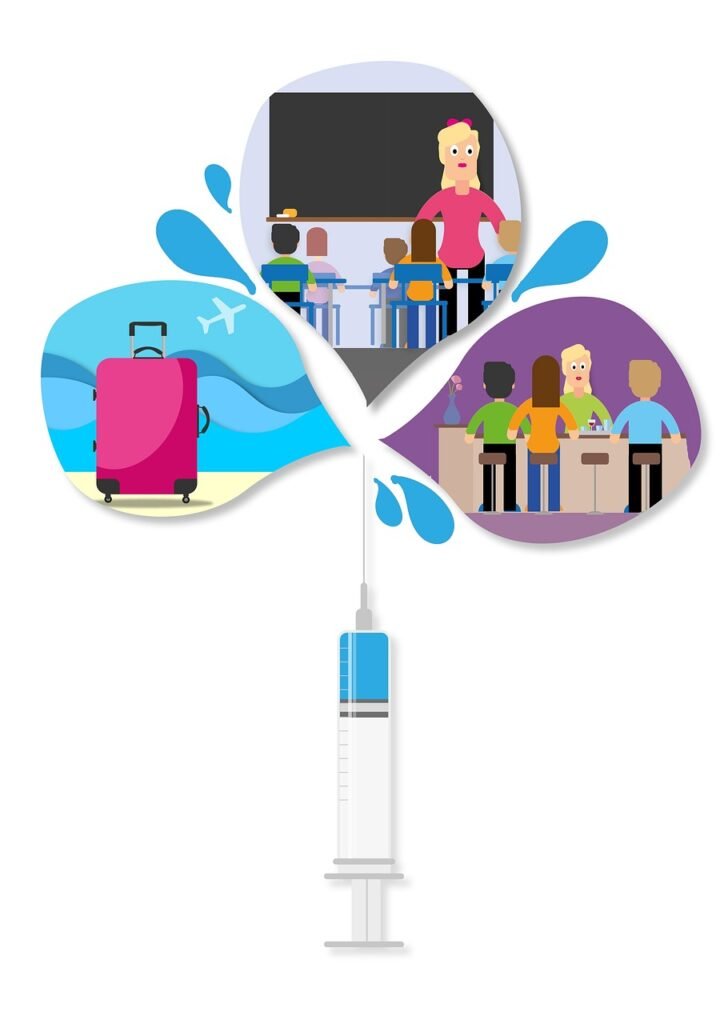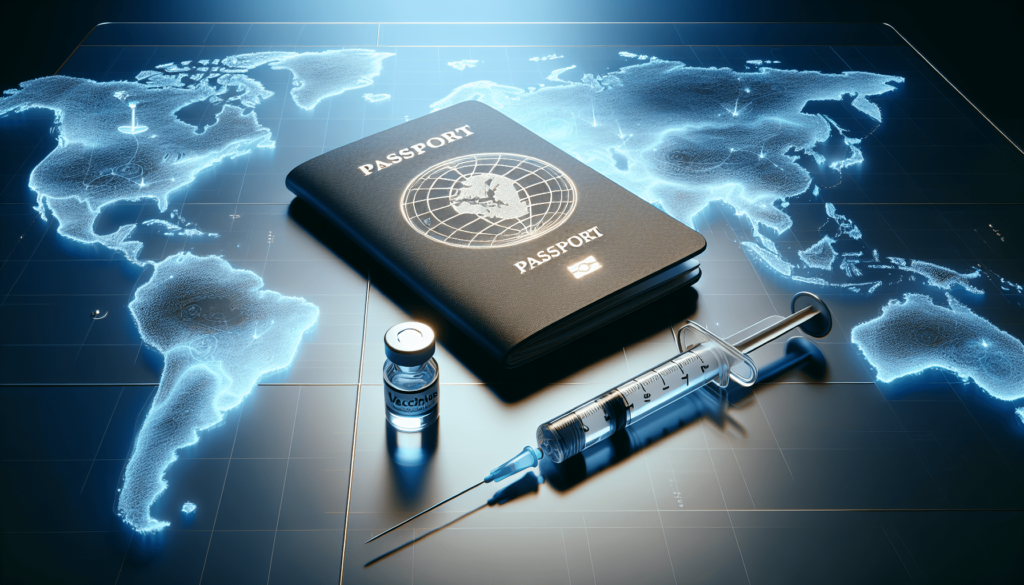Have you ever wondered what vaccinations you might need for safe international travel? Whether you’re planning a leisurely vacation or a business trip abroad, understanding the necessary vaccinations can be vital to your health and safety. Vaccines protect you from diseases that may not be common in your home country but are prevalent in your travel destination. This article will look in-depth at the various vaccinations required for international travel, providing a thorough guide to prepare you for a safe and healthy journey.

This image is property of pixabay.com.
Understanding the Importance of Travel Vaccinations
When one embarks on international travel, they may be exposed to infectious diseases that are uncommon in their home country. Travel vaccinations are crucial because they help to prevent illnesses, ensuring travelers return home as healthy as when they left.
Common Travel Diseases
Diseases like Yellow Fever, Malaria, and Typhoid are just a few of the illnesses that can afflict international travelers. Each country has its own unique health risks, and understanding these risks can help travelers take proactive measures.
Below is a table summarizing some common travel diseases and their typical modes of transmission:
| Disease | Transmission Method | Common Symptoms |
|---|---|---|
| Yellow Fever | Mosquito Bites | Fever, chills, headache, jaundice |
| Malaria | Mosquito Bites | Fever, chills, sweating, body aches |
| Typhoid | Contaminated Food/Water | High fever, weakness, stomach pain |
| Hepatitis A | Contaminated Food/Water | Fatigue, nausea, abdominal pain, jaundice |
Awareness of these diseases and their transmission methods allows travelers to better protect themselves through vaccinations and preventive measures.
Pre-Travel Consultation
Before hitting the road, it is essential to consult with a healthcare provider. This step should ideally be taken four to six weeks before travel to ensure all vaccinations are administered in time.
Choosing the Right Healthcare Provider
One should look for a healthcare provider who specializes in travel medicine. These providers are well-versed in the health risks associated with different geographical areas and can offer tailored advice, including vaccinations, medications, and preventive measures.
Discussing Health History
During the consultation, it is important to discuss one’s health history in detail. Existing medical conditions, allergies, and previous vaccinations should be disclosed to ensure that the recommended vaccines are both safe and effective.
Essential Vaccinations for International Travel
The vaccines recommended for international travel depend on various factors, including the destination, the duration of the stay, and the traveler’s health history. However, there are key vaccinations commonly advised.
Hepatitis A and B
Hepatitis A is highly recommended for travelers visiting countries with moderate to high rates of the disease, particularly in areas where food and water sanitation may be unreliable. Hepatitis B is usually advised for travelers who may have close contact with local people or require medical care while abroad.
Yellow Fever
Yellow Fever is a viral disease transmitted by infected mosquitoes. Vaccination is critical for travel to certain parts of Africa and South America, and some countries require a certificate of vaccination for entry.
Typhoid Fever
This bacterial infection is common in areas with inadequate sanitation and hygiene practices, particularly in South Asia and parts of Africa. The vaccine can be administered orally or via an injection.
Rabies
While rabies is a rare disease, it is almost always fatal once symptoms appear. Vaccination is advised for those traveling to rural areas or engaging in activities that may bring them into contact with wild or domestic animals.
Cholera
Cholera is an acute diarrheal illness caused by eating or drinking contaminated food or water. The cholera vaccine is often recommended for travelers heading to areas with ongoing outbreaks or inadequate water and sanitation conditions.
Yellow Fever
The Yellow Fever vaccination is mandatory for entry into certain countries that are Yellow Fever-endemic zones. The vaccine provides life-long immunity and must be documented on the International Certificate of Vaccination or Prophylaxis.
Japanese Encephalitis
Travelers spending time in rural areas of Asia, particularly during the rainy season, should consider the Japanese Encephalitis vaccine.
Below is a table that highlights the essential vaccines, their recommended frequency, and the regions where they are most needed:
| Vaccine | Frequency | Recommended Regions |
|---|---|---|
| Hepatitis A | 2 doses | Global |
| Hepatitis B | 3-dose series | Global |
| Yellow Fever | Single dose | Africa, South America |
| Typhoid Fever | Every 2-3 years | South Asia, Africa |
| Rabies | Pre-travel series | Asia, Africa, South America |
| Cholera | Single dose | Areas with outbreaks |
| Japanese Encephalitis | 2-dose series | Asia |
Additional Preventive Measures
Malaria Prevention
Malaria is a significant risk in many tropical and subtropical countries. Although there is no vaccination for malaria, travelers can take measures to prevent mosquito bites and use antimalarial medications.
Using Mosquito Repellents
DEET-containing insect repellents are highly effective. These repellents should be applied to exposed skin and clothing to reduce the risk of mosquito bites.
Sleeping Arrangements
Travelers should sleep under insecticide-treated bed nets, especially in areas where malaria-carrying mosquitoes are prevalent.
Safe Food and Water Practices
Ensuring safe food and water consumption is paramount when traveling. Travelers should drink bottled or boiled water, avoid ice in drinks, and eat well-cooked food.
Personal Hygiene
Maintain personal hygiene by washing hands regularly with soap and water or using hand sanitizers with at least 60% alcohol.

This image is property of pixabay.com.
Necessary Documentation
International Certificates of Vaccination
Travelers may need to provide proof of certain vaccinations, such as Yellow Fever, upon entering specific countries. The International Certificate of Vaccination or Prophylaxis, also known as the Yellow Card, serves this purpose.
Keeping Records Handy
It’s advisable to carry copies of one’s vaccination records and any other necessary medical documents while traveling. Having them in both physical and digital formats ensures they are available when needed.
Common Challenges and Solutions
Dealing with Vaccine Hesitancy
Some travelers may be hesitant about receiving vaccinations due to concerns about side effects. Healthcare providers should provide comprehensive information about the benefits and potential side effects of vaccines to help alleviate these concerns.
Financial Considerations
Travel vaccines can be costly and might not be covered by standard health insurance. Budgeting for these expenses well in advance can help mitigate financial stress. Additionally, checking for any available government or community programs that offer low-cost vaccinations can also help reduce costs.
Managing Time Constraints
Travelers often find themselves pressed for time when preparing for a trip. Prioritizing vaccines based on the highest risk for the destination and ensuring timely consultation with a healthcare provider can help manage these constraints effectively.

This image is property of pixabay.com.
Post-Travel Health
Monitoring Health
After returning from a trip, travelers should monitor their health closely for any unusual symptoms. Early detection and treatment of any travel-related illnesses can prevent complications.
Consulting Healthcare Providers
If experiencing any symptoms like fever, fatigue, or gastrointestinal distress, one should seek immediate consultation with a healthcare provider and inform them about recent travel history.
Keeping Records Updated
Keep vaccination records updated as a reference for future travel and medical checkups.
Conclusion
Understanding and ensuring appropriate vaccinations are crucial steps for safe international travel. From Hepatitis to Yellow Fever and Japanese Encephalitis, vaccines play a vital role in defending travelers against various diseases. With a thorough pre-travel consultation, adherence to preventive measures, and an organized approach to health documentation, one can embark on their journey with confidence, knowing they have taken the necessary steps to protect their health.
Safe and informed travels lead to memorable experiences, free from the worry of preventable illnesses. This comprehensive guide offers a roadmap to navigate the complexities of travel vaccinations, preparing travelers for the thrilling escapades that await them around the globe.






